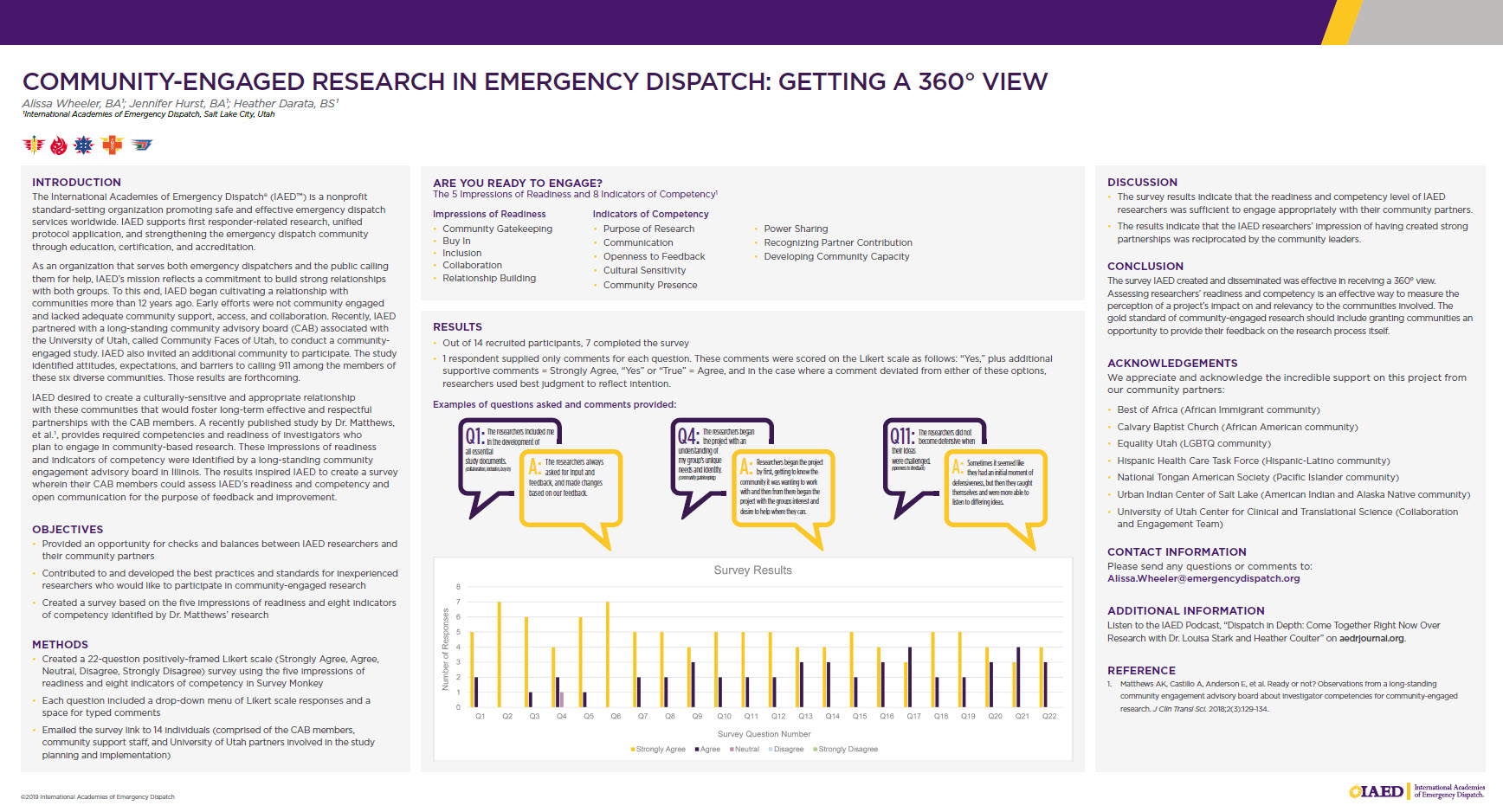
Abstract
Introduction:
The International Academies of Emergency Dispatch® (IAED™) is a nonprofit standard-setting organization promoting safe and effective emergency dispatch services worldwide. IAED supports first responder-related research, unified protocol application, and strengthening the emergency dispatch community through education, certification, and accreditation. As an organization that serves both emergency dispatchers and the public calling them for help, IAED's mission reflects a commitment to build strong relationships with both groups. To this end, IAED began cultivating a relationship with communities more than 12 years ago. Early efforts were not community engaged and lacked adequate community support, access, and collaboration. Recently, IAED partnered with a longstanding community advisory board (CAB) associated with the University of Utah, called Community Faces of Utah, to conduct a community-engaged study. IAED also invited an additional community to participate. The study identified attitudes, expectations, and barriers to calling 911 among the members of these six diverse communities. Those results are forthcoming. IAED desired to create a culturally-sensitive and appropriate relationship with these communities that would foster longterm effective and respectful partnerships with the CAB members. A recently published study by Dr. Matthews, et al.¹, provides required competencies and readiness of investigators who plan to engage in community-based research. These impressions of readiness and indicators of competency were identified by a long-standing community engagement advisory board in Illinois. The results inspired IAED to create a survey wherein their CAB members could assess IAED's readiness and competency and open communication for the purpose of feedback and improvement.
Objectives:
- To provide an opportunity for checks and balances between IAED researchers and their community partners
- To contribute and develop best practices and standards for inexperienced researchers who would like to participate in community-engaged research
- To create a survey based on the five impressions of readiness and eight indicators of
- Created a 22-question positively-framed Likert scale (Strongly Agree, Agree, Neutral, Disagree, Strongly Disagree) survey using the five impressions of readiness and eight indicators of competency in Survey Monkey
- Included a drop-down menu of Likert scale responses and a space for typed comments for each question
- Emailed the survey link to 14 individuals (comprised of the CAB members, community support staff, and University of Utah partners involved in the study planning and implementation)
- 7 out of 14 recruited participants completed the survey
- 1 respondent only supplied comments for each question. These comments were scored on the Likert scale as follows: "Yes," plus additional supportive comments = Strongly Agree, "Yes" or "True" = Agree, and in the case where a comment deviated from either of these options, researchers used best judgment to reflect intention.
The survey IAED created and disseminated was effective in receiving a 360° view. Assessing researchers' readiness and competency is an effective way to measure the perception of a project's impact on and relevancy to the communities involved. The gold standard of community-engaged research should include granting communities an opportunity to provide their feedback on the research process itself.
